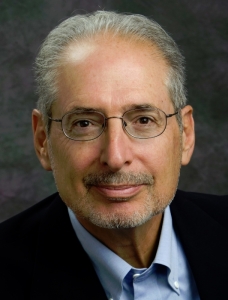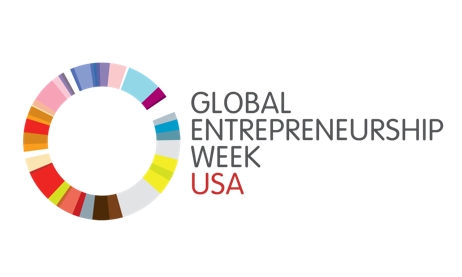The Innovator Newsletter, Winter 2014
A newsletter showcasing news, highlights and partners involved in the innovation and entrepreneurial ecosystem at the University of Central Florida.
A newsletter showcasing news, highlights and partners involved in the innovation and entrepreneurial ecosystem at the University of Central Florida.
When a guy from Silicon Valley who’s been a part of two multimillion-dollar startups and is co-owner of a venture capital firm talks, entrepreneurs need to take note.
And that’s just what more than 100 people did at downtown Orlando’s Church Street Exchange event on Jan. 29.
Jerry Engel visited Orlando to not only kick off National Science Foundation’s I-Corps program at the University of Central Florida, but to view Orlando’s tech scene and offer his insights.
A seasoned veteran of Silicon Valley will visit Orlando next month.
Venture capitalist Jerry Engel, an adjunct professor at University of California at Berkeley will appear in a question-and-answer session that will cover his career as an investor.
Engel founded Berkeley’s Lester Center for Entrepreneurship and teaches students about venture financing, innovation and private equity.
Jerry Engel had some advice for Orlando’s tech entrepreneurs Thursday: Determine the community’s leaders and make it easy to find them.
But, above all else, keep them here.
“You are building recognizable icons that represent your city,” said Engel, a veteran Silicon Valley entrepreneur. “Your job is to help convince those people (to stay). You cannot let them exit your community.”
There’s a new program at UCF to help get innovative research and startup companies into the marketplace faster.
Called I-Corps, the program is the first Florida location for an effort headed by the National Science Foundation. I-Corps used a ten-week program to help students and faculty test their ideas so they can launch a profitable business.
 The UCF I-Corps program will proudly welcome the co-founder and leader of the Lean Startup movement on Thursday, January 29th for two events in Orlando. Jerry Engel will make special appearances at UCF’s campus and at an industry mixer/reception in downtown Orlando, in partnership with Canvs, Starter Studio and Orlando Tech Association, as part of the official launch and debut of the UCF I-Corps program.
The UCF I-Corps program will proudly welcome the co-founder and leader of the Lean Startup movement on Thursday, January 29th for two events in Orlando. Jerry Engel will make special appearances at UCF’s campus and at an industry mixer/reception in downtown Orlando, in partnership with Canvs, Starter Studio and Orlando Tech Association, as part of the official launch and debut of the UCF I-Corps program.
UCF Campus Event Thursday, January 29th Networking lunch: 12pm – 1:30pm Live Oak Event Center Who’s Invited: Students, Faculty and Community Event is Free! Register at http://bit.ly/1zR4ub4
Industry Mixer/Reception Thursday, January 29th 5:30pm – 8pm at Canvs (Exchange Building) – located at 101 S. Garland Ave., Orlando, 32801 Who’s Invited: Aspiring Entrepreneurs, Industry Mentors Event is $10 per person (after January 15, rate is $15 per person) Register at http://bit.ly/1Dbp0qm
The Lean Startup movement promotes a non-traditional classroom approach to entrepreneurial learning. This hand-on methodology requires students to propose and test their hypotheses in “real world” scenarios. Industry mentors review findings with students, helping them make appropriate adjustments to their innovation and/or launch plan in preparation for bringing their ideas to market. Lean Startup emphasizes engagement and experiential study.
“We consider it a great privilege to welcome Jerry Engel to Central Florida,” says Ivan Garibay, Ph.D., Program Director for UCF I-Corps. “Having the co-founder and leader in the Lean Startup movement here to spend time with students, faculty, aspiring entrepreneurs and industry leaders is an incredible opportunity. We look forward to learning from him as we develop and shape our own I-Corps program.”
For more information about UCF I-Corps, please contact us.
UCF has been selected by the National Science foundation (NSF) to provide Florida’s first implementation of one of the agency’s flagship programs, an I-Corps Site. The I-Corps Site’s purpose is to foster innovation among faculty and students, promoting regional coordination and linkages in the innovation ecosystem, as well as develop a National Innovation Network. The primary goal of NSF I-Corps is to provide University scientists and researchers the program, process, and resources to investigate and validate the commercialization of their science. UCF has one of the nation’s best innovation and entrepreneurial networks and is one of 15 universities nationwide that is leading an I-Corps Site program. The UCF I-Corps program is administered by the university’s Center for Innovation and Entrepreneurship (CIE), a department that consolidates and coordinates UCF’s major innovation and entrepreneurship support activities.
Jerry Engel is a leader in the Lean Startup movement. Collaborating closely with Steve Blank, chief architect of the Lean LaunchPad method, he helped develop the curriculum and co-authored the LaunchPad Educators Guide. He has taught the Lean LaunchPad at U.C. Berkeley and across the U.S. as National Faculty Director of the National Science Foundation’s I-Corps program, which has trained over 300 teams of the nation’s leading scientists. Internationally he is supervising programs in Asia and Europe. Additionally, as Faculty Director of a highly rated faculty development program in the U.S., conducted a Berkeley, Stanford and Columbia, he has trained several hundred faculty in the method. Professor Engel is a graduate of the Wharton School at the University of Pennsylvania and the 2010 recipient of the NCIIA – Olympus Corporation Lifetime of Educational Innovation Award.
Nine teams will embark on a 10-week journey to learn the Lean Startup methodology as part of the inaugural class of the UCF I-Corps program beginning January 30, 2015.
(ORLANDO, Fla) – The University of Central Florida (UCF) I-Corps committee announced the entrepreneurial teams selected to participate in the program’s inaugural class. Teams will embark on their 10-week journey beginning January 30, 2015.
The inaugural I-Corps class represents a cross section of students from various UCF programs, including College of Engineering and Computer Science (CECS), Institute for Simulation and Training (IST), Florida Solar Energy Center (FSEC), NanoScience Technology Center (NSTC), College of Medicine (COM) and School of Visual Arts and Design (SVAD).
UCF I-Corps teams generally consist of an Entrepreneurial Lead (EL), Principal Investigator (PI) and Industry/I-Corps Mentor. Inaugural teams include: Talon Simulations (CECS); Autonomous Vehicle (IST); Smartphone Spectrometer (NSTC); e-Book Platform (CECS); Xapagy (CECS); MotivATE (COM); HybridaSol (FSEC); Healthshares (COM); and iBeacon Platform (SVAD).
These aspiring entrepreneurs will participate in an immersive, hands-on program designed to teach them how to test their ideas, gauge feasibility, understand consumer demand, examine competition and develop mutually beneficial partnerships to help transition their ideas into profitable enterprises. Experienced advisors and mentors oversee the teams and coach them toward success.
The inaugural teaching team consists of a mix of experienced entrepreneurs and UCF faculty including Thomas O’Neal, Oscar Rodriguez, Michael O’Donnell, Cameron Ford, Ivan Garibay and David Metcalf. The entire teaching team was trained at the Lean LaunchPad Educators Seminar at Stanford. This training was facilitated by Jerry Engel and Steve Blanks, creators of the Lean Launchpad movement. Engel, a professor at Berkeley (University of California) and National Faculty Director of the NSF
I-Corps program, will be co-teaching the first and last inaugural classes with the UCF teaching team.
Dr. Nicoleta Hickman UCF’s FSEC, will serve as the PI for HybridaSol. “Our entire team is excited to accept this honor and challenge,” says Dr. Hickman. “To be part of this first group is very special, and we are determined not to disappoint. We realize this is a major investment in HybridaSol by the National Science Foundation and the I-Corps committee.”
Ivan Garibay, Ph.D., serves as Program Director for UCF I-Corps. “Being named one of only 15 universities nationwide to lead an I-Corps site is an incredible opportunity and privilege for UCF,” explains Garibay. “The I-Corps committee put much time and effort into choosing teams representing diverse ideas and innovations. We look forward to seeing the transformation and progress of our inaugural class.”
 UCF plans to debut its I-Corps program in a big way. Jerome “Jerry” Engel, Ph.D. – co-founder and leader of the Lean Startup movement – will make special appearances at the UCF campus and at a community mixer downtown, in partnership with Canvs and Starter Studio, to help officially kick-off the UCF I-Corps program.
UCF plans to debut its I-Corps program in a big way. Jerome “Jerry” Engel, Ph.D. – co-founder and leader of the Lean Startup movement – will make special appearances at the UCF campus and at a community mixer downtown, in partnership with Canvs and Starter Studio, to help officially kick-off the UCF I-Corps program.
UCF I-Corps – administered by the UCF Center for Innovation and Entrepreneurship (UCF CIE) – is a statewide program designed to foster, grow and nurture an innovation ecosystem through partnerships between the National Science Foundation, Florida universities and venture capital and entrepreneurial communities.
Central Florida is poised to become the epicenter of the Lean Startup movement in Florida.
This hands-on methodology emphasizes engagement and experiential study. The approach requires teams of researchers and students to propose and test their business hypotheses in “real-world” scenarios. Industry mentors review findings with students, helping them make appropriate adjustments to their innovation and/or commercialization plan in preparation for bringing their ideas to market.
Ivan Garibay, Ph.D., serves as Program Director for UCF I-Corps.
“The I-Corps program will help promote and facilitate innovation and research throughout the entire state of Florida,” explains Dr. Garibay. “UCF is honored to have been selected as one of 15 sites I-Corps sites across the nation. Having the opportunity to bring the co-founder and leader in the Lean Startup movement here to Central Florida solidifies the foundation of this very exciting and promising program.”
Jerry Engel collaborated closely with Steve Blank, chief architect of the Lean LaunchPad method, to help develop the curriculum and co-author the LaunchPad Educators Guide. Engel is a leader in entrepreneurship education, venture capital, corporate innovation and regional economic development. He joined the University of California at Berkeley in 1991 and founded the Lester Center for Entrepreneurship. As an adjunct professor at the Haas School of Business he has instructed in both the School’s MBA and Executive Education programs specializing in Entrepreneurship, New Venture Finance, Corporate Innovation, and Venture Capital. He has taught the Lean LaunchPad at U.C. Berkeley and across the U.S. as National Faculty Director of the National Science Foundation’s I-Corps program, which has trained over 300 teams of the nation’s leading scientists. Internationally he is supervising programs in Asia and Europe.
For more information about UCF I-Corps, please contact us.
 One of the key concepts in the Lean LaunchPad methodology is Customer Discovery, otherwise known by its call to action – “Get Out of the Building!” Expect to hear that phrase constantly during the first weeks of class.
One of the key concepts in the Lean LaunchPad methodology is Customer Discovery, otherwise known by its call to action – “Get Out of the Building!” Expect to hear that phrase constantly during the first weeks of class.
It’s essential to the process that team PIs and entrepreneurial leads meet face to face with as many potential customers, users, and influencers of their technology as possible. There is no substitute for the comprehensive feedback you get by reading the eyes and body language of your customer. It can be ego-deflating as well, particularly when the customer’s value of your technology and how they’d use it is totally different than you thought – for the twentieth time!
So what to do? You keep going. Getting out of the building.
You’ll tweak your interview targets based on the comments you get. Over time, as you use this feedback to drive the evolution of your Business Model Canvas, you’ll get better at refocusing and finding next-stage customers. Remember the discussion about the multiple pivots your idea would go through during the I-Corps term? This refocusing on new customers and new needs is that pivot process in action. Your value proposition, customer, distribution channel, and other elements of your startup will move and morph based on the demands of your market. You usually end up in a very different place than you started.
To maximize the effectiveness of the Customer Discovery process, it’s important to be highly prepared from the first interview. Don’t accept that you’ll get better with experience. While true, don’t ad lib your way through the first sessions. When you create your first list of customer prospects, they’re likely to be the people you think are the best fit for your technology. Your best prospects. Why wouldn’t you prepare to do a good job the first time? Role-play with other people, including from other teams. Read and heed advice from the required text Talking to Humans (Constable, 2014). Find and watch videos online on Customer Discovery and interviewing skills. Be the best interviewer you can be from the first day. In doing so, you’ll position yourself to maximize your information gathering process. Within the Lean LaunchPad framework, the greater the volume and quality of your information, the quicker you may find a viable business model for your startup.

What’s the truism about the chance of failure for a random startup? 80 percent? 90 percent? It’s a bleak picture if you’d like to start a technology venture. All the effort, expense, and grind of hours for months on end you’re willing to put into pursuing your dream. Yet the statistics say that dream has an excellent chance of being a smoldering lump in a few years.
Believe it or not, there’s no better time to jump start your dream than now.
Your first task? Embrace failure.
Not for its own sake. But without failure, success is more difficult to find.
We’ll work with you to be sure you fail time and again. It’s part of the plan.
The Lean LaunchPad methodology was adopted by the National Science Foundation for the I-Corps program, in part, because the hypothesis testing core to the LLP approximates the scientific method applied to technology venturing. It’s this testing in the form of Customer Discovery interviews with prospective customers, users, and influencers that provides the feedback for your idea to fail. The current term is “pivot”. Consider a pivot to be a complete or partial failure of the original idea.
The week-by-week process of information gathering integral to the LLP process provides a framework for your idea to fail multiple times in a very short timeframe. More importantly, you’ll fail in a way that’s much faster, cheaper, and painless – except to your ego -than pursuing a startup on your own.
Once you embrace failure and the Customer Discovery process, something amazing often happens about halfway through the course. The pivots stop. You begin to hear the same things from people you talk to. Conversations and reactions become more uniform. You just may have something! A value proposition. Product-market fit. The elements of a business model. And a potential path to success.
Or not. But that’s OK. There are usually three outcomes that you’ll discover when you engage with customers about their needs and issues:
All these outcomes are positive. If your concept has a chance of success, you’ll know quickly and have a much better idea of its market opportunity. If no current market opportunity exists, you’ll know that quickly as well, without the personal costs that normally accompany business failure.
The UCF I-Corps program. Failure spoken here.
Written by Eddie Hill
Orlando is on a roll. Unlike Disney’s facsimile downtowns, the parade of companies is very real. But like the people moving down those Disney thoroughfares, the dancing in the streets is very real too, thanks to major job creation.
You’ve heard it before – 90% of all businesses fail. If you’re thinking of starting your own venture, that’s a sobering statistic. Think about it – given stunning advances in technology, access to market research, big data sets, and entrepreneurial training from high school through graduate school, that statistic hasn’t changed over time. Why do we continue to get it so wrong?
I’ve coached entrepreneurs for years. I especially love working with new entrepreneurs. But conversations about their market and customer need often leave me empty. Not for a lack of information, but confirmation – How do you know? Usually, they don’t. They infer from experience and make assumptions based on very limited knowledge. Unfortunately, they’re the norm.
Now the 90% failure rate starts to make sense.
The Lean LaunchPad methodology powering the I-Corps curriculum shatters the startup model as we’ve known it. How will you know about customer need, market opportunity, and a business model that works? You’ll ask.
You’ll talk to 100 potential customers and users over 10 weeks. Your assumptions will dissolve quickly. Expect your concept to pivot several times as new assumptions make contact with new customers. Soon, you’ll know if you have a market opportunity and a business model that works.
Three outcomes are likely. All are positive!
It’s wonderful if you find a viable market opportunity. It’s highly valuable to learn quickly and cheaply if your concept will fail. Maybe you’ll decide that a startup isn’t for you just now.
Whatever your decision, your next steps as an entrepreneur are far more likely to be successful, because you’ll execute based on evidence – not guesses.
 The week ending November 23 is Global Entrepreneurship Week, a growing international movement highlighting the opportunities and benefits of entrepreneurship. It’s also a time for community organizations assisting entrepreneurs to get visibility for the work they do and redouble their efforts to connect with aspiring entrepreneurs.
The week ending November 23 is Global Entrepreneurship Week, a growing international movement highlighting the opportunities and benefits of entrepreneurship. It’s also a time for community organizations assisting entrepreneurs to get visibility for the work they do and redouble their efforts to connect with aspiring entrepreneurs.
In this context, it’s an excellent time to examine the startling acceptance of the Lean LaunchPad methodology. From the first class a few years ago, it quickly became apparent the LLP was a new model to teach entrepreneurs how to evaluate venture opportunities. We stopped thinking of startups as early-stage businesses and saw them as temporary forms within which teams could discover if a viable value proposition and business model existed for their idea. If not, the LLP provides a framework to allow the startup idea to fail multiple times within the span of a few weeks, greatly shortening the time and expense to discover that a new venture has no chance of success. This process to discover the factors underlying the success or failure of a venture idea in such a short timeframe was revolutionary in its simplicity and its impact on entrepreneurship.
Like any good revolution, the Lean methodology spread quickly. The National Science Foundation (NSF) uses the LLP as the foundation for its I-Corps program to promote the commercialization of university research technologies. The LLP was also recently endorsed by the National Institutes of Health (NIH) for its life science technology commercialization programs. Based on the short, substantial history of success of the LLP in uncovering commercial opportunities, we expect other Federal agencies to endorse the use of the Lean LaunchPad for their research commercialization programs.
Outside of the newer Federal programs, the LLP methodology has diffused into various programs at the K-12 level nationwide. The Lean method of hypothesis testing has proven to be easy to implement and a highly valuable addition to the curriculum. In the spirit of Global Entrepreneurship Week, you may like to know that Lean LaunchPad is going global, too. My Educators’ class at Stanford in April included entrepreneurship educators from:
Join us in the global Lean revolution. Submit your venture idea to UCF’s I-Corps program. Applications for Summer ’15 start in January.
We can’t wait to hear your idea!
The potential of UCF moving downtown and the benefits to the community.
The Orlando Rising documentary project and event brings together thought leaders from across the spectrum of Orlando’s $14 billion creative technology sector to provide the public with an inside look at the city’s fastest-growing industry. Orlando leaders have a vision: to transform our city into a global center for digital innovation. Orlando Rising will explore that vision by engaging industry experts, government officials, heads of successful local companies, emerging leaders and others in an in-depth discussion about the development and potential future of the city’s diverse tech industry.
Great things happen when one of the nation’s largest universities is in one of the world’s most popular cities.Together UCF and Orlando attract some of the brightest minds and innovative companies.
UCF I-Corps is about to be the next big thing for researchers on campus, so make sure you get connected and get involved!
The I-Corps team has hit the ground running, and is already making its mark around campus and in the local community. Help accelerate ideas and research from lab space to the market by staying in tune and in touch with our info sessions, events and information about the I-Corps program at UCF.
The UCF I-Corps team WANTS you to stay involved and stay informed about all UCF I-Corps developments, and we are constantly working on making our information-sharing process as smooth and efficient as possible. We are pleased to announce that very soon, our YouTube channel will be up and running and populated with informational (and sometimes fun!) videos. We are also working on developing our LinkedIn page and group.
The most important part about UCF I-Corps right now, is getting our name out there! If you are excited by our mission, then show and share our name and pages to all of your friends, family, classmates and colleagues!
#InnovateUCF #UCFICORPS #UCFStarters
On behalf of the UCF I-Corps team, thank you for helping to generate excitement about the program and for your assistance in spreading our name and mission to students, researchers and faculty everywhere!